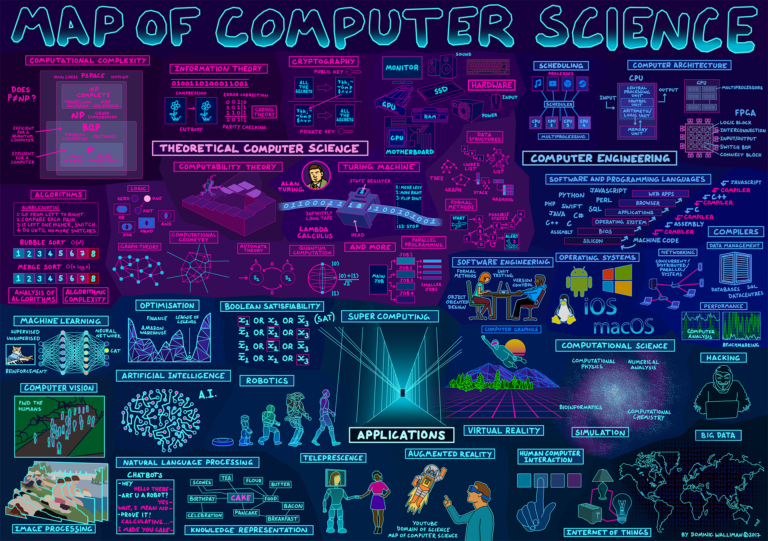CS & IT
Here are the top 10 ways to understand the difference between CS and IT:
- Focus: Computer science is focused on the theoretical and mathematical aspects of computing, including algorithms, programming languages, and computational theory. Information technology, on the other hand, is more focused on the practical application of technology to solve real-world problems.
- Curriculum: Computer science courses typically cover topics such as data structures, algorithms, computer architecture, and programming languages. Information technology courses cover topics such as database management, networking, system administration, and software development.
- Job Titles: Computer science graduates are typically called computer scientists or software engineers, while information technology graduates may be called IT specialists, network administrators, or systems analysts.
- Skills: Computer science graduates tend to have a strong foundation in programming, mathematics, and problem-solving, while information technology graduates are more focused on technical skills like networking, database management, and system administration.
- Research: Computer science is a research-oriented field, with a focus on advancing the state of the art in computing. Information technology is more applied, with a focus on using technology to solve practical problems.
- Degree Programs: Computer science degrees tend to be more theoretical, with a strong emphasis on mathematics and programming. Information technology degrees tend to be more practical, with a focus on real-world applications.
- Career Paths: Computer science graduates may work in a variety of fields, including software development, data science, and artificial intelligence. Information technology graduates may work in fields like network administration, database management, and technical support.
- Certifications: There are a variety of industry certifications available for information technology professionals, such as Cisco Certified Network Associate (CCNA) and Microsoft Certified Systems Engineer (MCSE). There are also certifications available for computer science professionals, such as the Oracle Certified Java Programmer certification.
- Salaries: According to the U.S. Bureau of Labor Statistics, computer science graduates earn a median annual salary of $122,840, while information technology graduates earn a median annual salary of $88,240.
- Interdisciplinary: Finally, it’s important to note that the fields of computer science and information technology are becoming increasingly intertwined. Many employers now require professionals with a blend of technical and business skills, which may require both computer science and information technology expertise.






